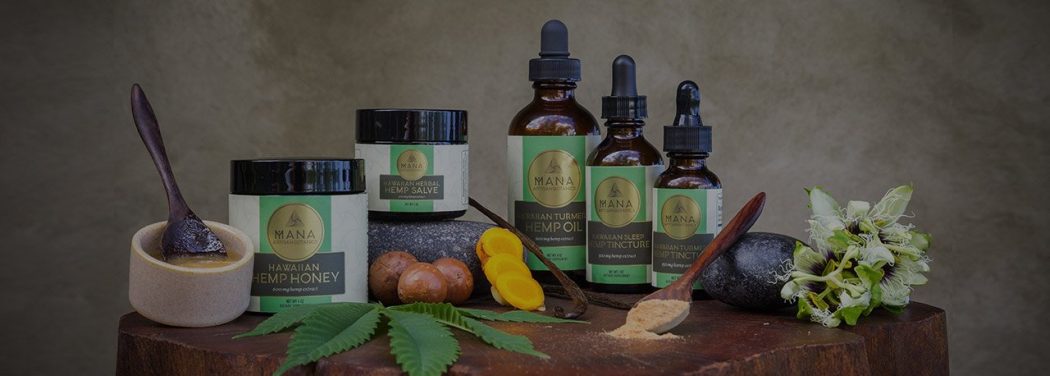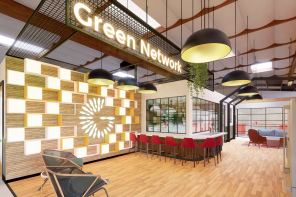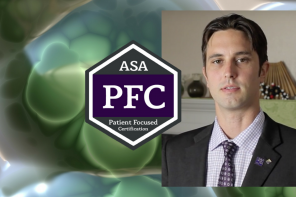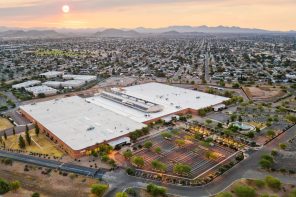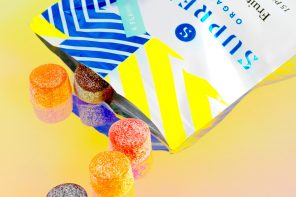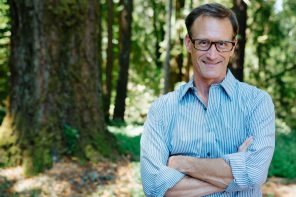Steve Sakala is growing hemp on one of only three farms contracted by the state of Hawaii.
“When the permits come out this year, each of the three rounds will have 10-12 permits, so by the end of 2018, we could have 30-40 farms in Hawaii with the potential to grow hemp,” Sakala said. As a leader in regenerative farming, Sakala has a vision for sustainable hemp to revitalize Hawaiian agriculture.
Sakala, an outspoken regenerative agriculture and Hawaii hemp activist who was awarded the first contract to grow hemp in the state, is CEO of three companies: the hemp farm Green Hawaii Genetics, CBD oil and hemp products brand Mana Artisan Botanics, and Honaunau Farm Wellness Retreat, a resort that offers education and tours on sustainable farming.
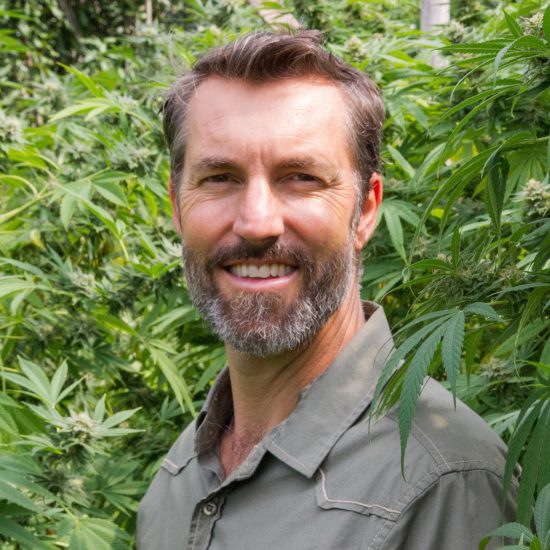
Steve Sakala, CEO of Mana Artisan Botanics (Photo provided)
Green Hawaii Genetics and two other farms, run by the University of Hawaii and a group in Maui, have RFPs from the Hawaii Department of Agriculture to do strain testing and development.
“Can hemp revitalize Hawaiian agriculture? I think it can,” Sakala said. “Hemp has a role to play in bringing awareness back to sustainable agriculture as a self-sufficiency practice.”
Sakala shared his vision for the future of hemp and cannabis in Hawaii with Cashinbis.
What was it like getting the first license to grow hemp in Hawaii, after so many years of activism?
It’s bittersweet because being a pioneer is rewarding in a lot of ways, and it has its challenges. We had been working for a number of years for the best way forward, and we had really great support from the Department of Agriculture. Legislators worked on bills for over 30 years in Hawaii before we got the hemp law two years ago. Senator Mike Gabbard – he actually sealed the deal and got the hemp law passed with his political capital and continues to be a great hemp supporter.
Having hemp in the ground is incredibly satisfying. We’re not able to do any product development from that crop yet – we’re basically just testing genetics for the state and developing new genetics that might work well here in Hawaii.
It looks like the hemp permits will be out sometime in March, sometime this month, in which case we’re looking forward to using Hawaiian grown hemp for all kinds of product development.
Why does Hawaii need a sustainable hemp industry?
Most of our agriculture industries in Hawaii are challenged in some way. We have lots of pests causing challenges, and the high land prices create a challenge to being a sustainable farmer in Hawaii from an economic standpoint. The fact that hemp is re-emerging as a cash crop that has the potential to revitalize our agricultural economy, it has a major role to play here in Hawaii.
We have to direct the hemp industry toward sustainability. I have this fear that hemp will become another mono-crop, that we won’t treat it in a way that really weaves it in with other cultural practices. Whatever state hemp is growing in, it has to be sustainable.
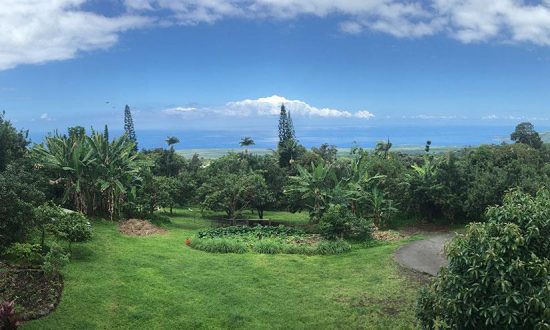
Honaunau Farm Wellness Retreat (Photo provided)
As hemp farms and cannabis farms are being created from the ground up, how can they prioritize sustainability?
The cannabis farms in Hawaii have traditionally been mom-and-pop, so we saw the sustainability piece as an integrated part of a family farm. Unfortunately, legislators have forced dispensaries to grow indoors – in my opinion, that’s headed in the wrong direction off the bat.
From Hawaii Farmers Union and now as an individual with my business, I’m continually lobbying my legislators to think about sustainability as that building block for this type of legislation. We should be using greenhouses, and growing under the sun, minimizing electricity and lights so we can really take advantage of the Hawaii tropical environment and build a sustainable model that can be replicated in other places.
Cover cropping, crop rotation, biological pest control, micro-organisms (and looking at those and how we can increase our uptake) – all of those pieces are approaches are the building blocks of sustainability.
How are things now for Hawaii’s dispensaries? Many were struggling to open last year.
None of the big island dispensaries are open yet, they all have challenges with permits and licenses with the state. Mana Botanics has a contract with a dispensary in Oahu, so they’re carrying our products. It seems like things are going well for them. I think we’re on the way to seeing a robust industry. One of the things I lobbied for when the bill was up for dispensaries was reciprocity.
Sometime this year, Hawaiian dispensaries will have reciprocity with other medical states and that should really open up the industry for them.
Does that mean if you’re a medical cannabis patient in another state, you could go to Hawaii and visit a dispensary?
Correct. They haven’t implemented that regulation yet, but it’s in the legislation for 2018, so I think they’re still creating how those rules and regulations will work.
It will be a really good thing for the state’s dispensaries because we have a fairly small population here in Hawaii – only 1.3 million throughout the state and seven major islands. Here on the big island, we only have about 180,000, so to make it economically viable for dispensaries, we thought that was going to be a key piece.
What kind of opportunities would recreational cannabis open up for entrepreneurs looking at Hawaii?
We’re definitely looking ahead a few years here. I was talking to one of our senators, Will Espero, he’s a great cannabis advocate here in Hawaii, and he and other senators agree that we’re probably five years out from recreational cannabis in Hawaii. It’s going to offer major opportunities for entrepreneurs here in Hawaii when that happens.
We hope that it doesn’t follow the same model as the dispensaries, where it was very limited to big entities. My hope is that if we went toward legalization there will be a concerted effort by legislators to really support small-scale entrepreneurs, and divide up the permits into retail, grows, so there are more opportunities.
Are Hawaiian farmers supportive of hemp?
We’re going to have similar problems to other states with medical cannabis and hemp growing in the same localities, near each other. The questions come up to us: Are you going to be growing hundreds of males in your crop, and is that going to pollinate my medical cannabis and ruin it? In general, farmers are very excited, but there is concern from medical cannabis growers that the hemp could be a danger.
We need to reach out to new key players that are interested in hemp, and make sure they are part of the dialogue on how to be good neighbors.
Because there’s potential with cannabinoid extraction from hemp, there’s a lot of people looking for their contribution in a small way. I think that’s where a lot of excitement comes from.
How would the Industrial Hemp Farming Act impact your company?
I’m excited about having a completely Hawaiian grown product. Hawaii has this agriculture brand known across the world, whether its pineapple, coffee, macadamia nuts, chocolate – to be able to add cannabinoid products grown in Hawaii to that list, was for me, having been in the cannabis industry 20 years, this is what I’ve been waiting for my entire life.
So that’s how it will impact my company – Now we’ll be able to say all the ingredients in our products are Hawaiian grown. I hope that speaks to growing a really grassroots Hawaiian industry, and we’re looking to support local farmers by buying organic honey, and organic cinnamon, to support the local agricultural economy. It’s farm-to-table in a CBD bottle.
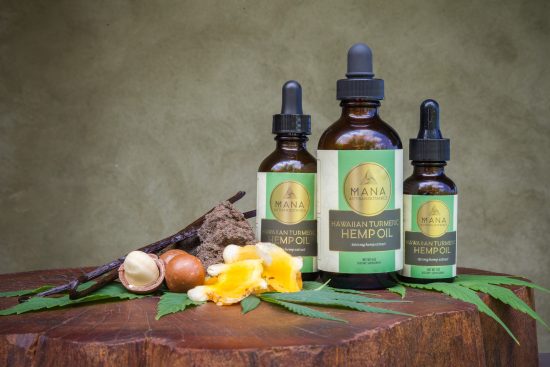
Mana Botanics – Hawaiian Turmeric Hemp Oil (Photo provided)
Honey is a prominent ingredient in Mana Artisan Botanics CBD products – Why is that?
We have honey in both of our tinctures. Part of the reason is that when we started creating Mana Botanics, we wanted to highlight products and ingredients from Hawaii, and Lehua honey is one of the world’s rarest honey. It’s an amazing, white crystallized, really unique flavored honey. I’ve had THC honey and thought – let’s see how this works with CBD to highlight this ingredient, and it turned out beautiful.
We really like supporting our local farms, and we get a lot of feedback from people who really like the flavor of the hemp extract combined with the honey. Of course, honey has medicinal value, so we get some people who use it for skin topicals and things like that. Really, it’s to create a product that highlights local Hawaiian agriculture and the diversity that we have here.
You just launched a new product, and a new online store. What else is in the works this year?
We’re really excited about the Hawaiian Turmeric Hemp Oil 3X line, it’s our most concentrated phytocannabinoid product with 450 ml per fluid oz. It’s combined with turmeric, which works with the endocannabinoid system. We’re not just creating another CBD business, but we want to infuse the chemicals that work in synergy with hemp. We’re looking at other botanicals and spices that work with the cannabinoid system for innovative recipes and ingredients that highlight flavor, health and wellness.
We created a non-profit 501c3 called Holistic Research & Education Foundation. What that will do is take money from donations and private foundations to fund cannabis research in university and institutional settings. I think we’ve seen research that cannabis works and now we need to know why it works. Looking at the endocannabinoid system, genetic markers that make people more receptive to cannabinoids – we’ll have a much better idea of how to approach cannabis as a first option rather than a last option in the medical world, so that we can avoid some of the negative effects of pharmaceuticals. We’re excited to start to fund some of these studies, and that’s how we will be supporting our passion for education.
Would you consider adding a cannabis tourism component to Honaunau Farm?
I would love to – I think that’s a big potential. Honaunau Farm is a little bit bigger than I’m able to keep up now that I have a product-based business and I’m growing hemp for the state. We already do a lot of ag tours at Honaunau Farm and adding cannabis to that would be a great addition. With the guest house and a way to host people, it’s something I’m looking quite seriously at.
What makes you so passionate about Hawaiian agriculture?
The reason I came to Hawaii is my root passion: regenerative agriculture or sustainable agriculture. Having studied sustainability in college and getting my degree in natural resources, I decided to go to Peace Corps and spent four years in West Africa working with farmers. During my time in West Africa, I realized agriculture is the foundation of all culture.
Until we make our agricultural systems sustainable and regenerative, we are not moving in the right direction as a human species and we can see the detriment that our corporate industrial agricultural systems are creating in our environment.
I’ve dedicated my life and my passion to building models for people to experience the regenerative lifestyle, and that has been transferred into cannabis. All cannabis should be organic and sustainably grown. If we’re going to promote it as something that’s healthy for people – even if it’s recreational, it’s still medicinal – people should know that they have an opportunity to benefit not just themselves, but supporting sustainable farmers, and supporting the land to be treated in a sustainable way for generations. It all translates into a much healthier environment.
It’s my hope that consumers start to demand these healthy products. Organic products are still in a minority, but the organic food industry is the fastest growing segment of that industry. For some reason, we haven’t seen that translated into the cannabis industry yet. It’s my hope that people will become more educated, and drive the demand for it.

